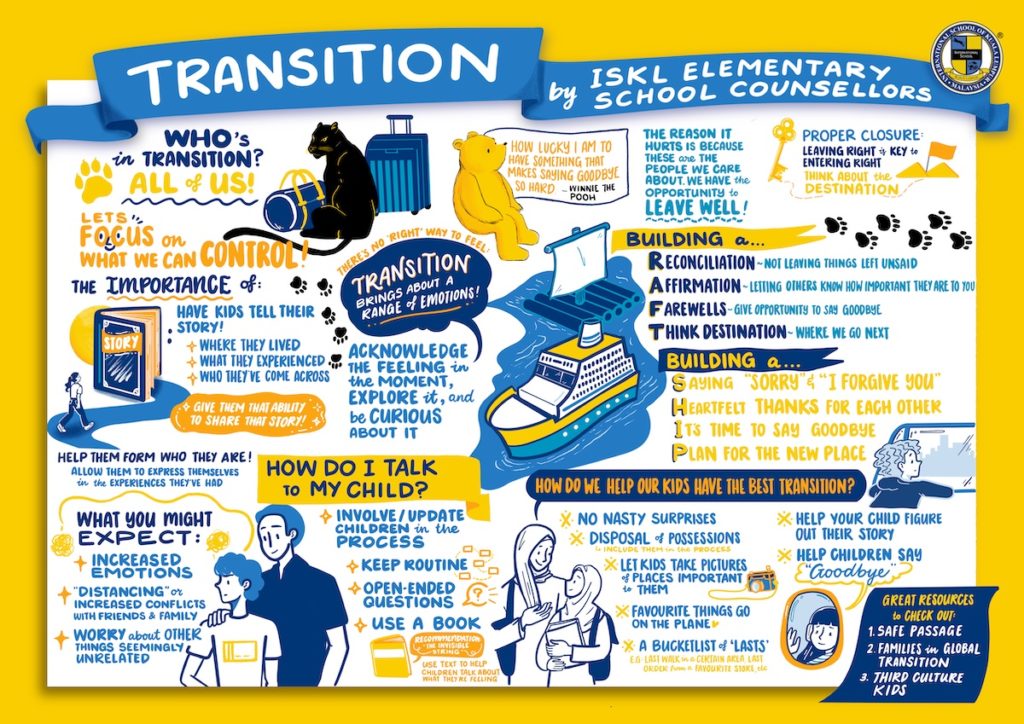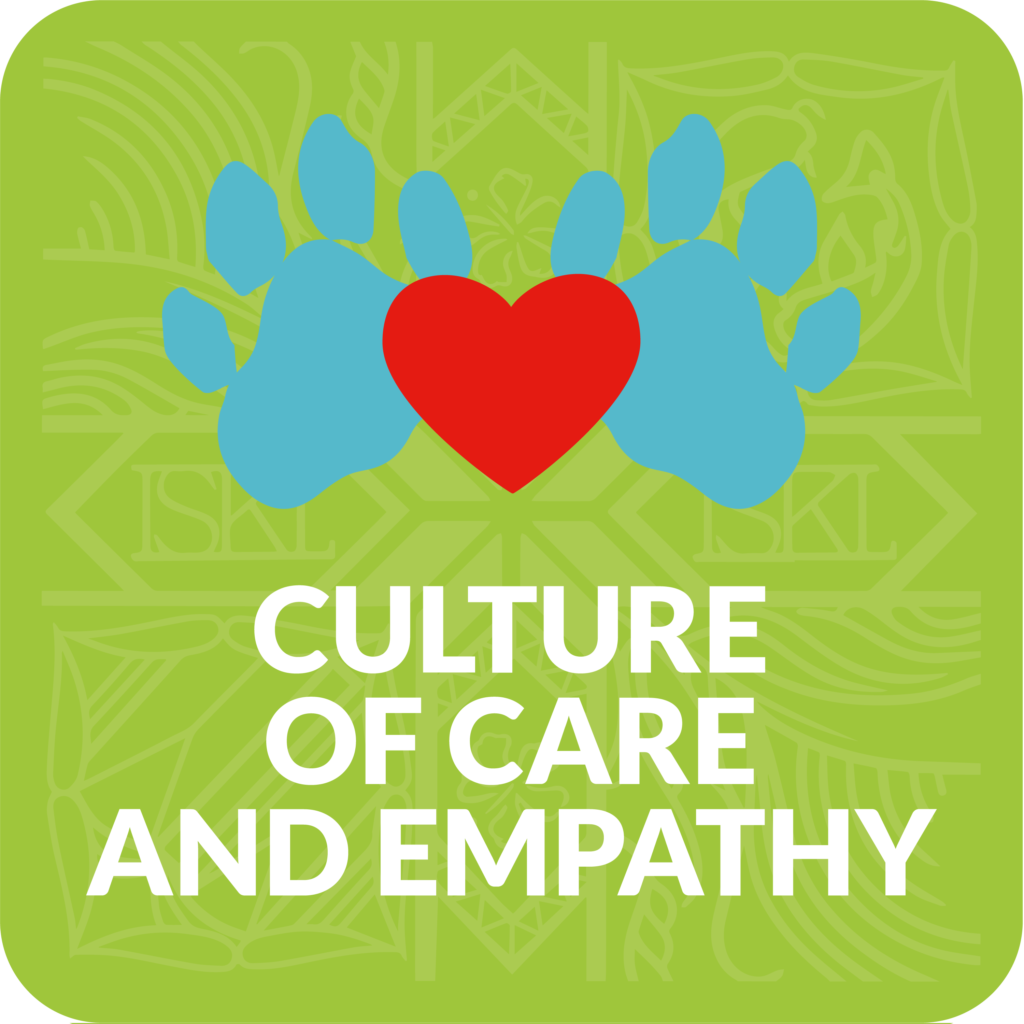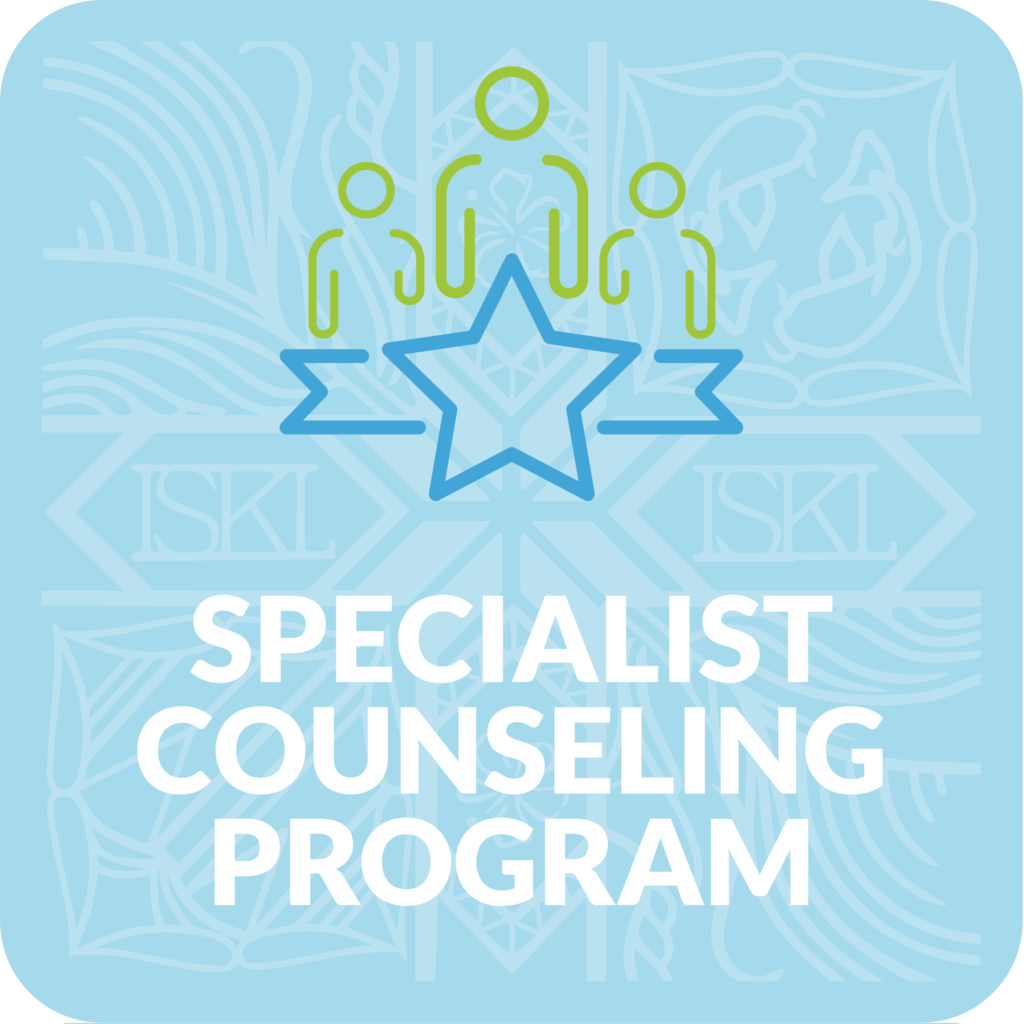Supporting Your Child Through A Transition



 With every new year, it is with much excitement that we say hello to new faces joining the ISKL family as we welcome them into our rich tapestry of cultures and vibrant learning environment that continue to shape the minds of our young children, ensuring that and more equipped to being exemplary global citizens.
With every new year, it is with much excitement that we say hello to new faces joining the ISKL family as we welcome them into our rich tapestry of cultures and vibrant learning environment that continue to shape the minds of our young children, ensuring that and more equipped to being exemplary global citizens.
Our curriculum and co-curricular program has been specifically designed to include diverse cross-cultural experiences that promote global awareness and an international mindset.
On the flipside, this means goodbyes are inevitable too; families having to move for work, friends who have to return to their home countries, or teachers assigned to another school are things that can and often do happen which may lead to a sense of loss especially for our young children who for some, may be experiencing it for the very first time. As adults, saying farewells and goodbyes have just become part and parcel of life, but for children this sudden loss can really affect and shape their attitudes towards grief in the long haul. While goodbyes can be hard to confront, it is important to help your child address it and manage their feelings healthily.
Telltale Signs
Firstly, it is important to be able to identify when your child might be going through a rough transitional period:
- Increased emotionality. Do they have shorter tempers than usual or are quick to tear up, sometimes over seemingly small things? These unexpected emotions could be a sign of built up grief.
- Distancing themselves with friends and family. Are they closing themselves off or hesitant to make new friends to protect themselves as they move on? Encourage them to get closure by talking about their feelings and connecting with others.
- Unrelated concerns. Are they suddenly worried about other things seemingly unrelated such as monsters in the night? Talk through these worries, acknowledging that it might be a way of distracting themselves from the real issues.
- Overwhelmed by uncertainties. Some of the thoughts that might be running through the minds include making new friends, fitting in, liking the new place, or whether the same activities they enjoy will still be available. If there are pets involved, be sure to provide closure for that and do not leave out any ‘surprises’.
Building A RAFT: A Journey to Healthy Transitions
It is important to note that even if your family is not moving but a close friend is, your child could still display similar behaviours. Whether leaving or being left behind, this move can feel like a loss of identity, which is why it is vital for us to remind them the importance of telling their story.
Help your children develop healthily emotionally, by expressing what they are going through, and by acknowledging that there is no right or wrong way to feel. The good news is that there are ways of navigating through this difficult time.
Every farewell requires a vehicle for proper closure, because leaving right is key to entering into the next phase correctly. A simple step is to build a RAFT:
Reconciliation
The first step is to not leave things unsaid. Work through conflict or problems that have happened. Once distance is in the way, regret has a way of living rent free in our heads for years. Let them be aware of the distance, and solve the problem before leaving to another location.
Affirmation
Here, it is important to let the people we love that we are leaving behind know how important they are in this portion of our lives. Whether it’s a friend that we’ve enjoyed spending time with or a teacher that’s been especially impactful, let them know that they’ve made a difference either verbally in person (if permitted during the pandemic), or through video or email.
Farewells
As tempting as it is to leave in the middle of the night–especially for those who are not comfortable with confrontation, avoid this as much as possible. Give this opportunity for both parties to say goodbye at the ending of this chapter. There are always creative ways to do it, with Zoom calls or a pre-recorded message if that eliminates the immediacy of a reaction that may seem daunting.
Think Destination
Introduce some lightness to the situation. While it may be sad to be leaving behind familiar faces and comfort zones, there’s also plenty to be excited about! For those that are staying behind, try having conversations with friends about where they’re going and get excited for their next adventures instead of focusing on sad and heavy feelings e. g. “How can we keep in touch?” “What are some new hobbies that you could take up?”, or even making plans to visit each other once travel is allowed. Forward thinking is helpful!
Thing To Do As Parents
This can be a good time to bond with your children by witnessing and closing this chapter together through these simple activities:
- i) To throw or not to throw
Disposal of possessions can be challenging. Discuss and have a plan for keeping what is really important even if it doesn’t make sense to adults. Communication is important.
- ii) Create ‘Leaving Books’
Let your children take pictures of places that are important to them, print them and stick them in their books, along with any written thoughts or things that mean something to them.
iii) Favourite things go on the plane!
Do not place important sentimental items in a shipping container that will take months to arrive. Make the journey as comfortable as possible.
- iv) Make a bucket list of “lasts”
For example, the last time we are going to eat ‘nasi lemak’, or visit their favourite hiking spot … plan ahead and try your best to do it all before leaving!
- v) Figure out their story
How will their Malaysia chapter play in the bigger story of their life? Help them figure out how the friends they have met and the lessons they have learnt during this time will help them in the bigger picture. Listen and validate by encouraging them to talk about it. Ask open ended questions i.e. “What was that like for you?”, “How did it make you feel?”, and “What are you most excited about?” These unique experiences make life interesting. After all, would ISKL literary friend and award-winning author Michael Ondaatje’s books have been quite as rich had he not travelled and lived in various parts of the world?
- vi) Help them say goodbye
As much as possible, try to avoid leaving without saying goodbyes. Help them have closure by involving and updating them about the process, keeping a routine, and encouraging a mindset shift of being able to do things as a family and gratitude for the little things throughout the day.
While farewells are part and parcel of life and will continue to happen throughout life, it is important to remember that there is a silver lining to being a third culture kid; Becoming highly adaptive and flexible, being able to cross cultures with ease, more open minded and empathetic, bilingual, and better at communication. These are all amazing gifts to have, and their friends and school will always be a part of this experience.
We would like to thank all parents and students that are leaving for letting us be a part of your story, and we wish you a safe journey. Jumpa lagi, and don’t forget to tell us all about your new chapter!
Moving on Transition – Part 1
Moving on Transition – Part 2

